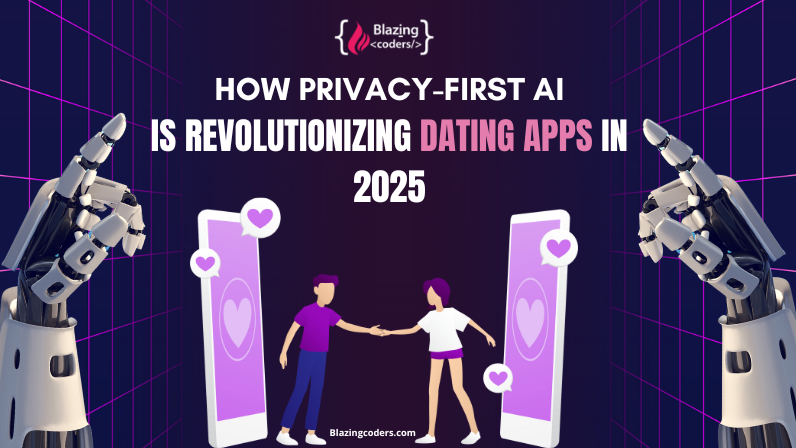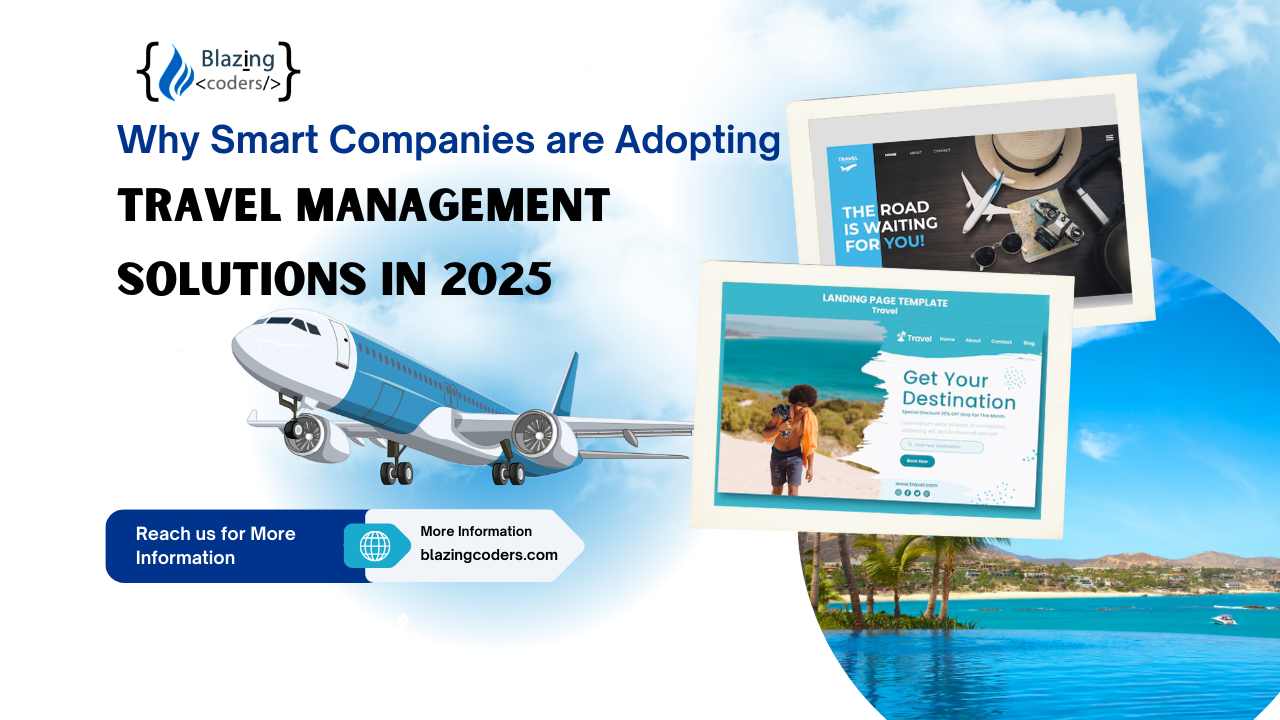In the rapidly evolving digital landscape of 2025, the dating industry is undergoing a significant transformation, driven by advancements in artificial intelligence (AI) and a growing emphasis on user privacy. Dating apps have become an integral part of modern relationships, with millions relying on them to find meaningful connections. However, users have also become increasingly aware and concerned about how their personal data is collected, stored, and used.
Enter privacy-first AI — a revolutionary approach that not only enhances user experience through smarter matchmaking but also prioritizes data security and user consent. This paradigm shift is redefining how dating apps operate and setting new industry standards. In this blog, we explore how privacy-first AI is revolutionizing dating apps in 2025 and what it means for users and dating app development companies.
The Rise of Privacy Concerns in Online Dating
Over the past decade, online dating has surged in popularity. Yet, with this growth, privacy concerns have escalated. Data breaches, unauthorized data sharing, and opaque privacy policies have shaken user confidence. According to recent surveys, nearly 60% of dating app users are worried about how their personal information is handled.
Users today demand transparency, control, and security. They want to trust that their intimate conversations, preferences, and sensitive details are protected from misuse or exposure.
What is Privacy-First AI?
Privacy-first AI refers to artificial intelligence systems designed with data protection as a foundational principle. Instead of collecting vast amounts of personal data on centralized servers, privacy-first AI employs techniques such as:
-
Data Minimization: Collecting only the necessary data to provide services.
-
On-Device Processing: Analyzing user data locally on devices rather than sending it to cloud servers.
-
Differential Privacy: Adding "noise" to data to anonymize user identity while still enabling analysis.
-
Federated Learning: Training AI models across multiple decentralized devices without sharing raw data.
-
End-to-End Encryption: Ensuring that user data is encrypted during transmission and storage.
These technologies collectively enable dating apps to deliver personalized experiences without compromising user privacy.
How Privacy-First AI Enhances Dating Apps
1. Smarter and Safer Matchmaking
Traditional dating apps rely heavily on massive data collection to fuel AI-driven matchmaking algorithms. With privacy-first AI, matchmaking becomes more intelligent and secure by analyzing only relevant data locally on the user’s device. This reduces the risk of data leaks and hacking incidents.
Privacy-first AI can:
-
Use encrypted chat analysis to understand user preferences.
-
Leverage federated learning to improve match recommendations without accessing raw personal data.
-
Provide real-time compatibility scores based on behavioral patterns while maintaining anonymity.
2. Empowering Users with Data Control
One of the biggest benefits of privacy-first AI is the empowerment of users through transparent data controls. Users can decide what data they share, how it’s used, and even revoke permissions anytime. This fosters trust and improves user retention for dating apps.
Some apps now provide:
-
Intuitive privacy dashboards.
-
Consent-based data sharing prompts.
-
Options to browse anonymously or selectively reveal profile information.
3. Reducing Fake Profiles and Catfishing
Fake profiles and catfishing have long plagued dating apps. Privacy-first AI helps combat these issues by employing secure identity verification methods that protect user anonymity. For example, biometric verification can be done locally, ensuring authenticity without exposing biometric data to servers.
AI-powered anomaly detection also flags suspicious behavior patterns without compromising genuine users’ privacy.
4. Enhancing User Safety and Moderation
AI-driven content moderation can detect and block inappropriate messages, harassment, or scams in real-time. Privacy-first AI ensures that this moderation happens with minimal exposure of private chats, using on-device natural language processing and encrypted scanning.
Safety features like emergency alerts and location sharing can also be integrated with strict privacy safeguards.
Implications for Dating App Development Companies
For businesses specializing in dating app development, embracing privacy-first AI is no longer optional — it’s imperative for staying competitive and compliant with evolving data protection regulations like GDPR, CCPA, and others.
1. Building Trust as a Market Differentiator
Dating app users in 2025 actively seek platforms that respect their privacy. A dating app development company that integrates privacy-first AI can position itself as a trusted partner, gaining a loyal user base.
2. Navigating Regulatory Compliance
Privacy-first AI naturally aligns with global privacy laws, reducing legal risks and penalties associated with data misuse. Development companies can ensure their apps meet or exceed standards by embedding privacy from the ground up.
3. Innovating User Experience
Privacy-first AI opens doors to new features like decentralized dating profiles, secure mutual matching algorithms, and personalized yet anonymous interactions — all of which create fresh value propositions.
4. Optimizing Costs and Infrastructure
On-device processing and federated learning can reduce server load and cloud infrastructure costs. This can be a strategic advantage for development companies focusing on scalable and cost-efficient solutions.
Real-World Examples: How Leading Apps Are Using Privacy-First AI
Some pioneering dating apps in 2025 have already adopted privacy-first AI frameworks:
-
CryptMatch uses blockchain-based identity verification with encrypted matchmaking algorithms.
-
SafeDate offers on-device compatibility analysis and encrypted chat moderation to protect user conversations.
-
AnonLove uses federated learning to update AI models across devices without collecting personal data centrally.
These innovations highlight the potential for privacy-first AI to reshape the dating landscape.
Challenges and Considerations
While promising, privacy-first AI implementation comes with challenges:
-
Technical Complexity: Developing AI models that work effectively on devices with limited processing power.
-
User Education: Ensuring users understand privacy features and consent options.
-
Balancing Personalization and Privacy: Striking the right balance between AI-driven recommendations and minimal data use.
-
Interoperability: Ensuring privacy features work across different devices and platforms.
A reputable dating app development company must carefully address these challenges to deliver robust and user-friendly privacy-first solutions.
The Future Outlook: Privacy-First AI as the Norm in Dating Apps
As privacy concerns continue to shape consumer expectations and regulatory environments tighten, privacy-first AI will become the gold standard in dating app development. Users will increasingly favor apps that combine smart matchmaking with uncompromising privacy.
For developers and entrepreneurs, this trend represents a tremendous opportunity to innovate responsibly. By investing in privacy-first AI, dating apps can build safer, more trusted communities where genuine connections thrive without fear of data exploitation.
Conclusion
Privacy-first AI is revolutionizing dating apps in 2025 by offering smarter matchmaking, enhanced security, and greater user control over personal data. This approach not only addresses critical privacy concerns but also unlocks innovative possibilities for personalized, safe, and enjoyable dating experiences.
For any dating app development company looking to stay ahead in this competitive market, embracing privacy-first AI is essential. It’s more than a technology trend — it’s the future of ethical and effective online dating.
FAQ
1) What is privacy-first AI in dating apps?
Privacy-first AI refers to artificial intelligence systems designed to prioritize user privacy by minimizing data collection, enabling on-device processing, and using encryption techniques. In dating apps, this means smarter matchmaking and safer user experiences without compromising personal information.
2) How does privacy-first AI improve user safety in dating apps?
Privacy-first AI improves safety by detecting fake profiles, flagging inappropriate content, and verifying users securely — all without exposing private user data. It enables real-time moderation and fraud detection while respecting user anonymity.
3) Are privacy-first AI dating apps more secure than traditional ones?
Yes. Privacy-first AI dating apps use advanced security protocols such as end-to-end encryption, federated learning, and local data processing, making them more resistant to data breaches and unauthorized access compared to traditional platforms.
4) What should I look for in a dating app development company for building a privacy-focused app?
When building a privacy-focused dating app, it's essential to choose a development partner that values both innovation and data security. Blazingcoders stands out as a leading Dating App Development Company with expertise in integrating privacy-first AI, end-to-end encryption, and secure on-device processing.With Blazingcoders, you get a scalable, secure, and modern dating app that puts user trust and data protection first.
5) What’s the future of dating app development with privacy-first AI?
The future lies in creating secure, intelligent, and consent-driven platforms where users have full control over their data. Privacy-first AI will become a standard in dating app development, reshaping how connections are made online.
6) Is privacy-first AI compliant with global data protection laws?
Yes. Privacy-first AI naturally supports compliance with global privacy laws like GDPR, CCPA, and others by design — reducing legal risks for app developers and offering peace of mind to users.





